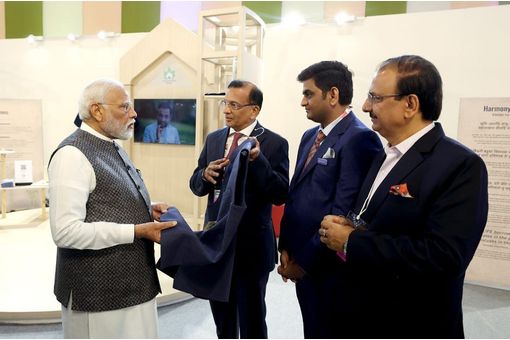UNCTAD expects world economy to grow by 2.5% in 2022, 2.2% in 2023

The synchronised slowdown is hitting all regions but is ringing alarm bells for developing countries, where the average growth rate is projected to drop below 3 per cent, a pace insufficient for sustainable development, further squeezing public and private finances and damaging employment prospects, UNCTAD cautioned in its Trade and Development Report 2022 released recently.
Middle-income countries in Latin America, as well as low-income countries in Africa, will register some of the sharpest slowdowns this year.
The report noted that countries that were showing signs of debt distress before COVID are taking some of the biggest hits (Zambia, Suriname, Sri Lanka) with climate shocks further threatening economic stability (Pakistan).
Monetary and fiscal policy moves in advanced economies risk pushing the world towards global recession and prolonged stagnation, inflicting worse damage than the financial crisis in 2008 and the COVID-19 shock in 2020, it said.
Rapid interest rate rises and fiscal tightening in advanced economies combined with the cascading crises resulting from the COVID pandemic and the war in Ukraine have already turned a global slowdown into a downturn with the desired soft landing looking unlikely, according to the report,.
In a decade of ultra-low interest rates, central banks consistently fell short of inflation targets and failed to generate healthier economic growth. Any belief that they will be able to bring down prices by relying on higher interest rates without generating a recession is, the report suggests, an imprudent gamble.
At a time of falling real wages, fiscal tightening, financial turbulence and insufficient multilateral support and coordination, excessive monetary tightening could usher in a period of stagnation and economic instability for many developing countries and some developed ones, it says.
“There’s still time to step back from the edge of recession,” UNCTAD secretary general Rebeca Grynspan said in a release.
“We have the tools to calm inflation and support all vulnerable groups. This is a matter of policy choices and political will. But the current course of action is hurting the most vulnerable, especially in developing countries and risks tipping the world into a global recession,” she said.
Net capital flows to developing countries have turned negative with the deterioration of financial conditions since the last quarter of 2021, the report said. On net, developing countries are now financing developed ones.
Some 90 developing countries have seen their currencies weaken against the dollar this year—over a third of them by more than 10 per cent; foreign exchange reserves are falling as well.
Forty six developing countries are now severely exposed to multiple economic shocks and another 48 seriously exposed, heightening the threat of a global debt crisis, the report said.
The report concludes the situation in developing countries is much more tenuous than recognised by the G20 and other international financial fora, with talk of a global financial safety net increasingly at odds with their reality.
UNCTAD called for raising official development assistance (ODA), a larger, more permanent, and fairer use of special drawing rights, hedging mechanisms to deal with exchange-rate volatility and greater leveraging of multilateral capital to support developing countries with comprehensive social programmes.
The report recommended a programme of reforms in developing economies to boost productive investment and constrain capital moving to exploit tax loopholes, along with new arrangements to support closer regional trade, investment and financial ties.
Fibre2Fashion News Desk (DS)
































-Ltd..jpg?tr=w-120,h-60,c-at_max,cm-pad_resize,bg-ffffff)





.jpg?tr=w-120,h-60,c-at_max,cm-pad_resize,bg-ffffff)
.jpg?tr=w-120,h-60,c-at_max,cm-pad_resize,bg-ffffff)






